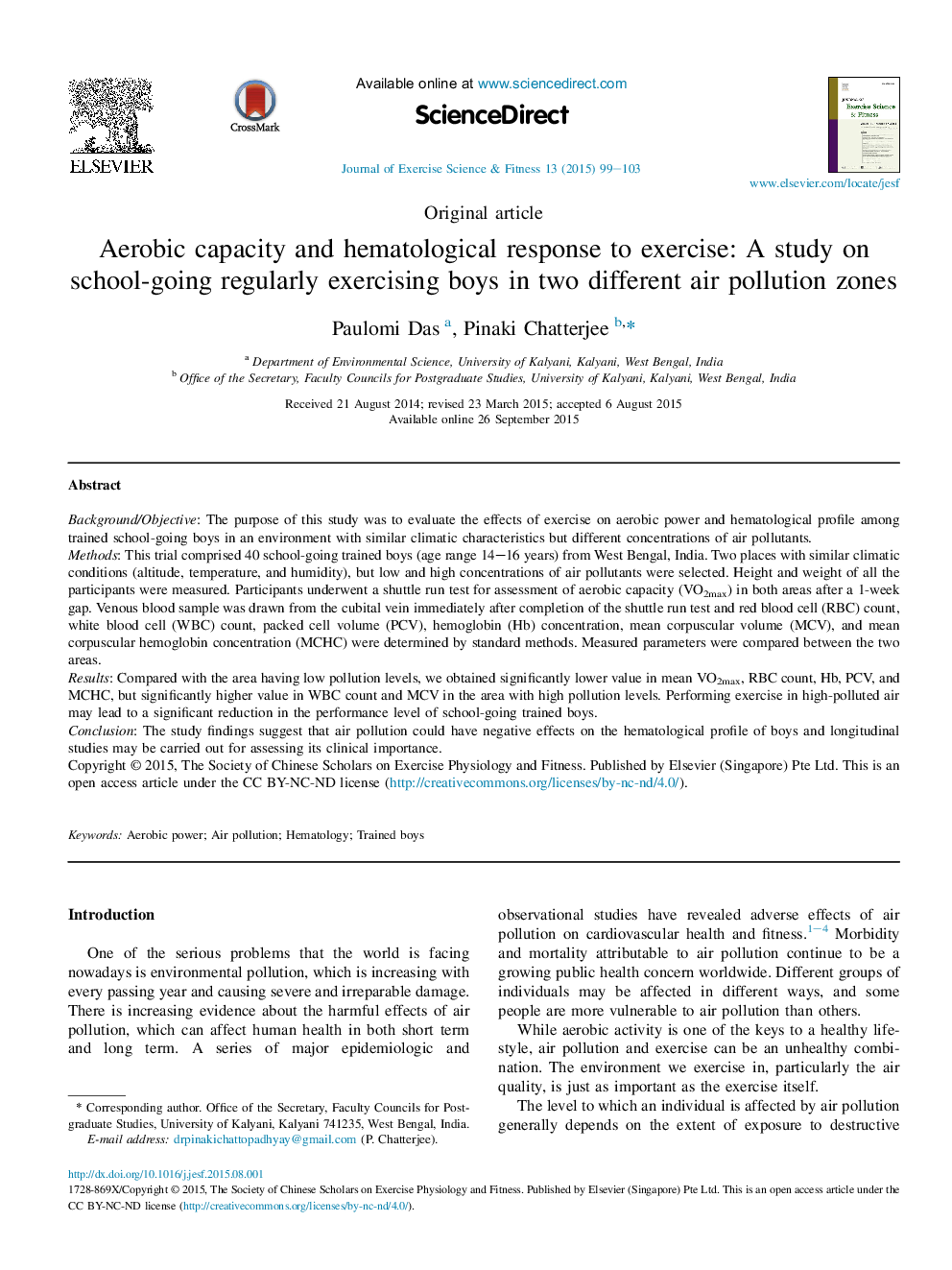| Article ID | Journal | Published Year | Pages | File Type |
|---|---|---|---|---|
| 2739603 | Journal of Exercise Science & Fitness | 2015 | 5 Pages |
Background/ObjectiveThe purpose of this study was to evaluate the effects of exercise on aerobic power and hematological profile among trained school-going boys in an environment with similar climatic characteristics but different concentrations of air pollutants.MethodsThis trial comprised 40 school-going trained boys (age range 14–16 years) from West Bengal, India. Two places with similar climatic conditions (altitude, temperature, and humidity), but low and high concentrations of air pollutants were selected. Height and weight of all the participants were measured. Participants underwent a shuttle run test for assessment of aerobic capacity (VO2max) in both areas after a 1-week gap. Venous blood sample was drawn from the cubital vein immediately after completion of the shuttle run test and red blood cell (RBC) count, white blood cell (WBC) count, packed cell volume (PCV), hemoglobin (Hb) concentration, mean corpuscular volume (MCV), and mean corpuscular hemoglobin concentration (MCHC) were determined by standard methods. Measured parameters were compared between the two areas.ResultsCompared with the area having low pollution levels, we obtained significantly lower value in mean VO2max, RBC count, Hb, PCV, and MCHC, but significantly higher value in WBC count and MCV in the area with high pollution levels. Performing exercise in high-polluted air may lead to a significant reduction in the performance level of school-going trained boys.ConclusionThe study findings suggest that air pollution could have negative effects on the hematological profile of boys and longitudinal studies may be carried out for assessing its clinical importance.
